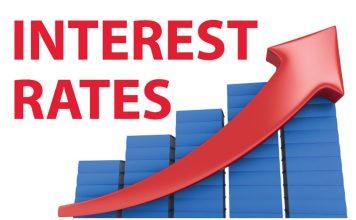Following the economical crisis and level of hardship, Economists said that Nigeria’s interest policy rate needs to improve to ensure capital market development.
This was the conclusion of a study conducted by economists, Awoleye Olayemi Folorunso Benjamin from the Department of Economics, Hallmark University and Department of Economics, Obafemi Awolowo University, Ile-Ife titled ‘The Nexus between Foreign Capital Inflows and Stock Market Development in Nigeria: Does Interest Rate Matter?’ which was published in the January – March 2024 edition of Bullion, a Central Bank of Nigeria publication.
The report explained the moderating effect of interest rates on the link between inflows of foreign capital and the Nigerian stock market development from 1986 to 2020.
The result of the analysis of data via Auto-regression distributed lag techniques revealed that in the short run, interest rate and foreign direct investment inflows have a direct negative effect on stock market development, but in the long run, both variables exert a positive effect on stock market development.
The study said, “The findings provide new insight into the conflicting facts regarding the development of the Nigerian stock market and Foreign Capital Inflow in several ways.
“First, the analysis demonstrates that while FDI and interest rates both have short-term detrimental effects on SMD, they both have significant long-term beneficial effects.
“The findings indicate that while the interaction between the factors has a large positive impact on SMD in the short run, it has a significant negative impact on SMD over the long term. This implies that interest rates enhance the effect of FDI on SMD in the short term, while it reduces the impact of FDI inflows on SMD in the long run.”
According to the news, SMD is negatively impacted separately and directly by both interest rates and foreign portfolio investment inflows over long and short periods of time.
“This implies that the FPI is not being used effectively to assist the growth of the domestic stock market. However, the interaction between the two factors shows a favourable impact on SMD in Nigeria over the long and short terms.
“This implies that the interaction between interest rates and FPI stimulates the expansion of the stock market. The FPI is boosted by interest rates, which significantly affects SMD nationally over the period under consideration. The findings of this study indicate that Nigeria’s policies will need to change over the long and short terms,” it stated.
It stated that to see the positive impact of the foreign capital inflow on capital market, better interest rate policies were required.
“To increase FCI and assure an influence on the nation’s stock market, it is necessary to simultaneously implement a better interest rate plan. To positively affect the country’s stock market, interest rates, and foreign capital inflows depend on one another.
“This study has added to the body of existing studies on the connection between FCI and the development of the Nigerian stock market and the moderating effect of interest rates on how foreign capital affects Nigerian SMD that has not been considered in other studies,” the report said.
The Monetary Policy Committee of the CBN has hiked the benchmark interest rate to 24.75 percent in a bid to tame the soaring inflation in the country.
Nigeria’s inflation rate is above 30 percent with projections that it would go higher.
